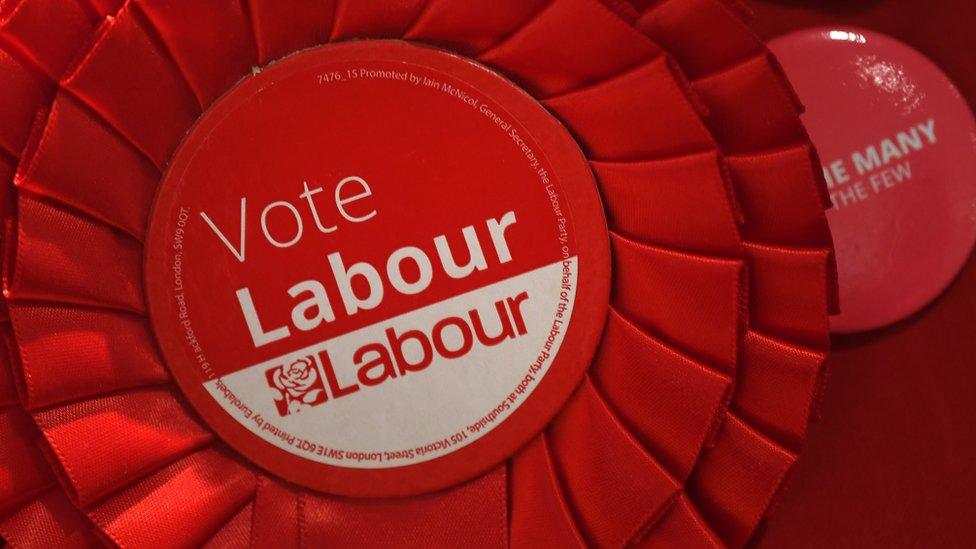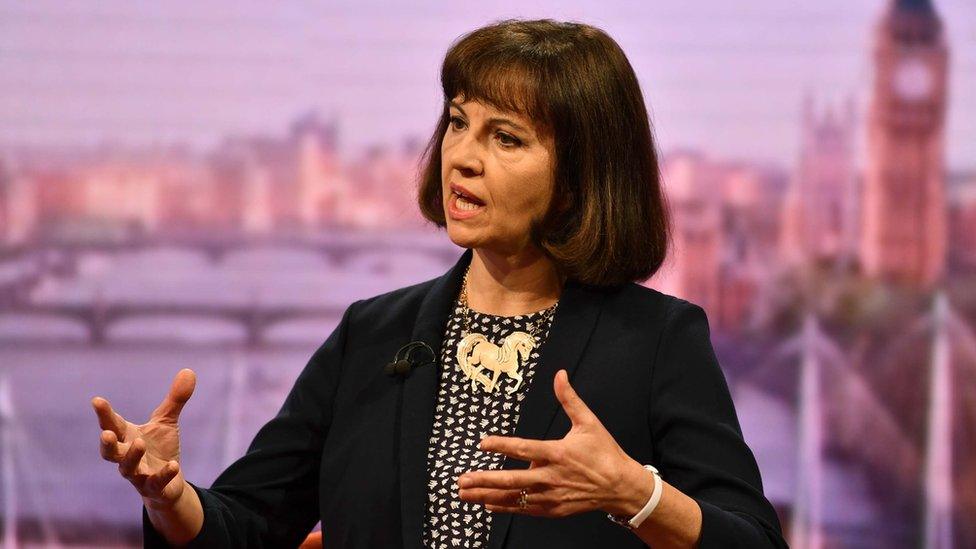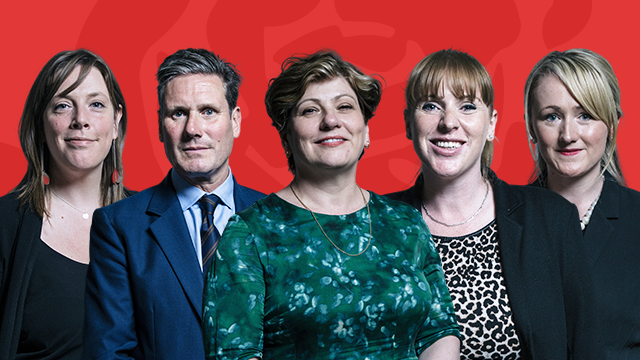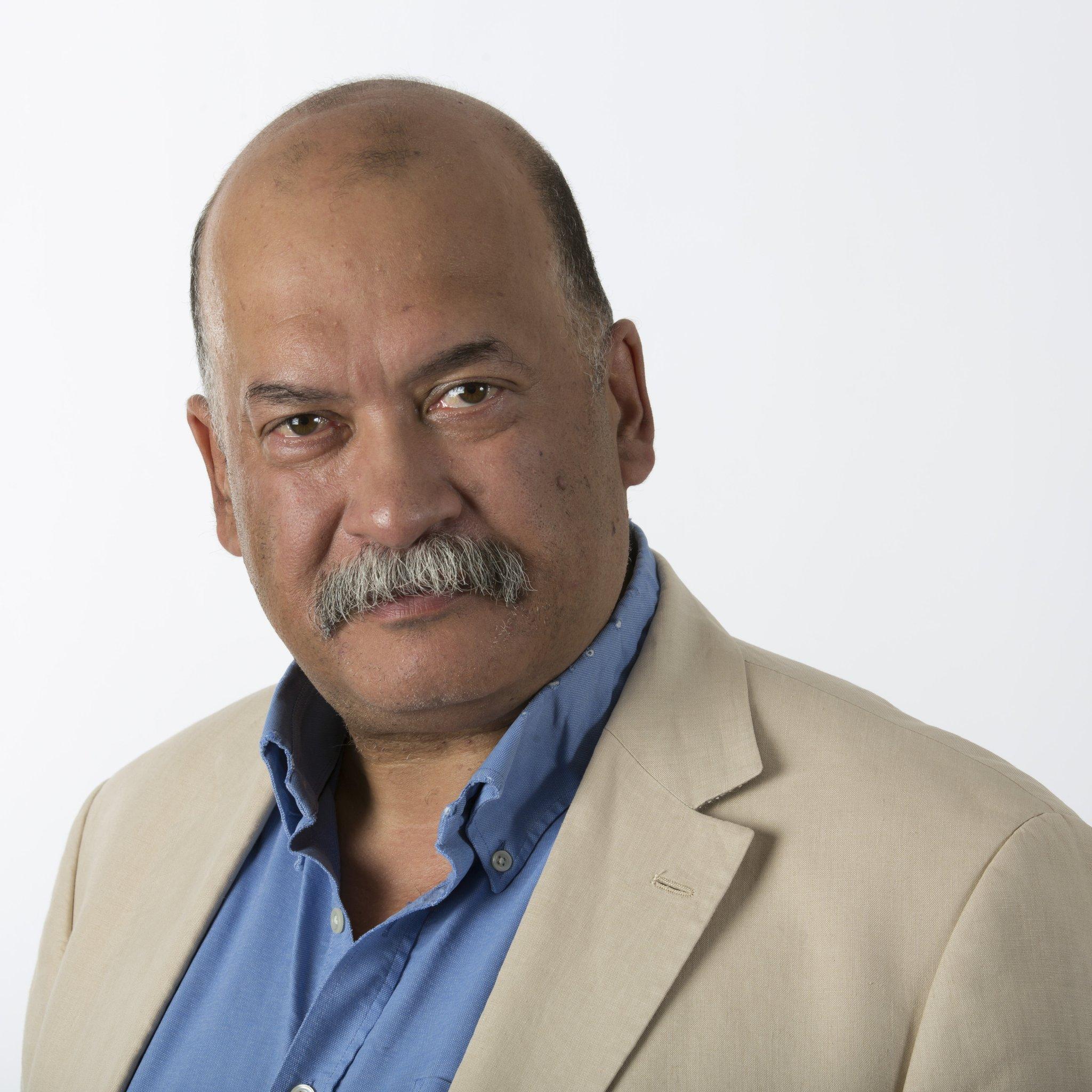General election 2019: Let the Labour leadership battle commence
- Published

Brave infantrymen in the muddy trenches of the Great War would hurl themselves onto the barbed wire to allow their comrades to march over their backs and advance towards the guns of the enemy.
Can you imagine doing that? No, me neither.
It's maybe no easier to see why there's already a line of Labour politicians preparing to join the battle to succeed Jeremy Corbyn.
Boris Johnson's 80-strong House of Commons majority by any normal standard could be big enough to repel Labour's next advance in five years.
It's reasonable to imagine that another leader could come and go before Labour recaptures the territory it has lost, assuming it ever does.
Whoever wins the coming leadership contest will first have to triumph in the struggle to map Labour's course through the field of battle; to decide how deep a shade of red the party's battle flag should be (just to torture the metaphor a little more).
The Labour leader's closest allies are now busy making the case that Corbynism must survive Corbyn.
When I spoke to his former chief cheerleader Len McCluskey, the general secretary of the giant trade union Unite, he told me the fudged message on Brexit - which he attributed, by the way, to Remainers not Leavers, and to the way Mr Corbyn had allowed himself to be pushed into promising a second referendum - had cost votes.
The party leadership had been tainted by it. But the radical left-wing policies had been "popular" and need not change.
Mr Corbyn himself argued in an article in the Observer newspaper, external that he was "proud we won the arguments", which begs the obvious question: if this election showed Labour had won the arguments, what would losing the arguments have looked like?
Mr McCluskey told me on my BBC Radio 5 Live programme Pienaar's Politics: "All of Labour's policies were extremely popular. The problem is that, yes, when they were put together, there was a question of credulity - could Labour really deliver all of this.
"As regards Jeremy, yes, there's no doubt that it became an issue on the doorstep because of course, for the last four years, every single day, he has been attacked massively in a way that no politicians have by the media.
"The media, especially the right-wing media, wanted the election to be about Brexit. If I have to say this a thousand times… Brexit was the reason for this defeat."
Next in line
Meanwhile, Labour comrades, including freshly defeated former MPs, say Labour pushed policies on tax, spending and public ownership that some found implausible.
Caroline Flint, ejected by the voters of Don Valley, told Sky News the answer could not be "Corbyn without a beard".
For good measure, Ms Flint landed her Labour Remainer colleague and likely leadership contender, Emily Thornberry, in it knee-deep.
She said the shadow foreign secretary had told a fellow MP she was "glad my constituents aren't as stupid as yours."
Ms Thornberry has since dismissed the anecdote as a "complete and utter lie", and has instructed solicitors over the comments.
Just as well. Otherwise her prospects in the leadership race might easily have grown as dim as she now denies characterising Leave voters.

Caroline Flint took on Jeremy Corbyn and Emily Thornberry on Sunday morning
So who will run?
Rebecca Long-Bailey was the first name Mr McCluskey mentioned when I asked him to state his preference.
The Corbynista shadow justice secretary, Richard Burgon, has said he'd like to be elected her deputy.
It's not clear though that she's keen to run, let alone, one imagines, play the role of Labour's bridge-across-the-barbed-wire.
Lisa Nandy hasn't, at the time of writing, declared her candidacy, but she surely will - having told the BBC's Andrew Marr "seriously thinking about it".
So will Sir Keir Starmer, the great hope of many pro-European centrists.
It was telling that John McDonnell told Marr it was time for a "non-London MP" to become leader, which appeared to rule out Sir Keir and Ms Thornberry, at least in his view.
Influence
The shadow chancellor also told Marr: "If anyone's to blame, it's me. Full stop."
That sounded big of him. Except, of course, that he gave up on his own hopes of becoming leader some time ago, and still means to have some influence in installing the next one.
As for Jess Phillips, the combative, charismatic wild card in the race when she joins it, Mr McDonnell volunteered that he would "prefer someone else… someone who actually has been really solidly involved in the development of our existing policy".
He wasn't, of course, sticking around with the aim of helping to install a suitable successor.
"We're not into that sort of conniving politics of the past," he said, which will reassure those who want a change of political direction.
Unless it doesn't.

Who will be Labour's next leader?

